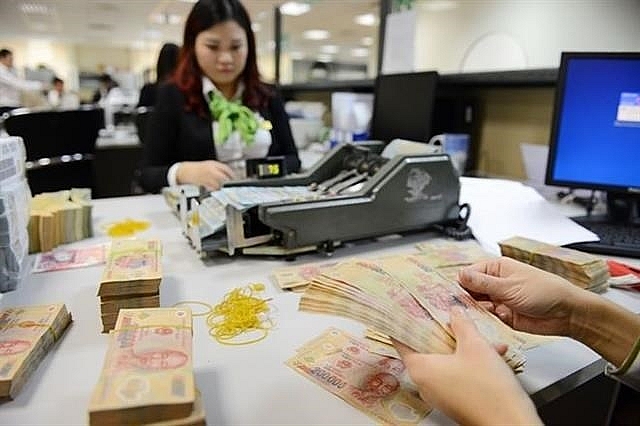Blockchain tech is applicable in many banking activities: expert
 |
| Cash notes being counted. Blockchain may help Vietnam achieve a cashless economy as it provides security, confidentiality, speed and accuracy for transactions. |
Blockchain helps save time and costs for businesses and government agencies when they make payments via international banking networks for trade activities, he said at a recent workshop in Ho Chi Minh City.
Stakeholders in a trade deal can replace paper with e-paper, which can be uploaded onto the blockchain platform, then it will become shareable, Luc said.
Doing business online using blockchain platforms is time-saving and cost-saving because it takes seconds to connect to each other and stakeholders don’t have to contact through brokers like they used to, he said.
The information of the deals will remain confidential because the data uploaded onto the blockchain platform cannot be changed without stakeholders’ mutual agreement, he added.
“Beside payments, blockchain technology is also used for other financial tasks such as transaction settlement, lending, crowdfunding, securities trading activities, tax collection and auditing,” Luc said.
Vietnam is among the world’s top 20 countries in terms of the number of internet users, social network users and smartphone users. In addition, the young population, fast internet development and increasing e-payment are other factors that make Vietnam favourable for blockchain technology.
However, there are still difficulties and challenges for blockchain development in the country. The biggest challenge is changing the habits of businesses, consumers and government agencies, according to Luc.
There is no specific legal framework to supervise new tech-based business models such as lending, fintech and digital asset management. Meanwhile, there is a lack of good-quality labourers to develop products and services on artificial intelligence (AI), blockchain and big data. In addition, Vietnam is vulnerable to cyber attacks.
What the stars mean:
★ Poor ★ ★ Promising ★★★ Good ★★★★ Very good ★★★★★ Exceptional
Related Contents
Latest News
More News
- IP alterations shape asset strategies for local investors (January 22, 2026 | 10:00)
- 14th National Party Congress: Vietnam - positive factor for peace, sustainable development (January 22, 2026 | 09:46)
- Japanese legislator confident in CPV's role in advancing Vietnam’s growth (January 22, 2026 | 09:30)
- 14th National Party Congress: France-based scholar singles out institutional reform as key breakthrough (January 21, 2026 | 09:59)
- 14th National Party Congress: Promoting OV's role in driving sustainable development (January 20, 2026 | 09:31)
- 14th National Party Congress affirms Party’s leadership role, Vietnam’s right to self-determined development (January 20, 2026 | 09:27)
- Direction ahead for low-carbon development finance in Vietnam (January 14, 2026 | 09:58)
- Vietnam opens arms wide to talent with high-tech nous (December 23, 2025 | 09:00)
- Why global standards matter in digital world (December 18, 2025 | 15:42)
- Opportunities reshaped by disciplined capital aspects (December 08, 2025 | 10:05)

 Tag:
Tag:




















 Mobile Version
Mobile Version